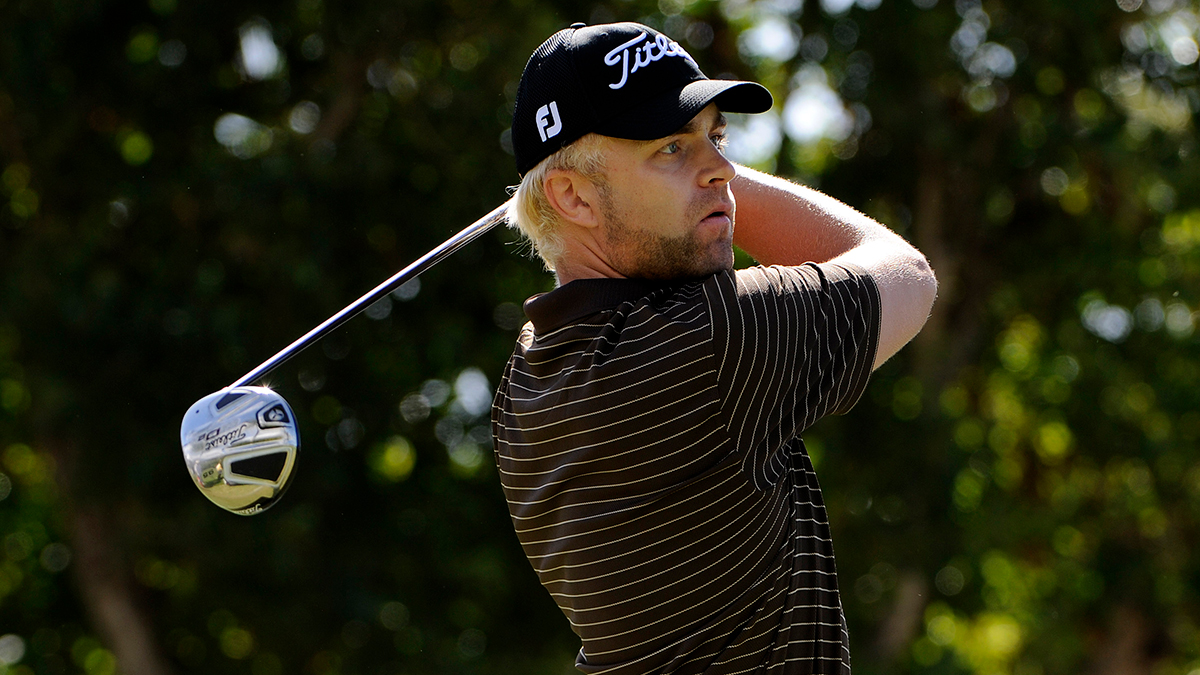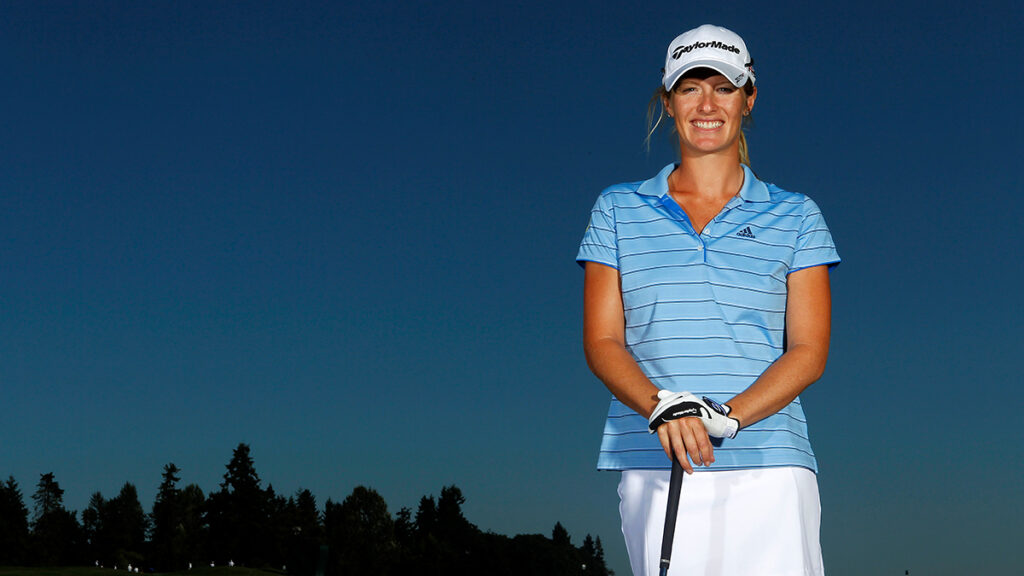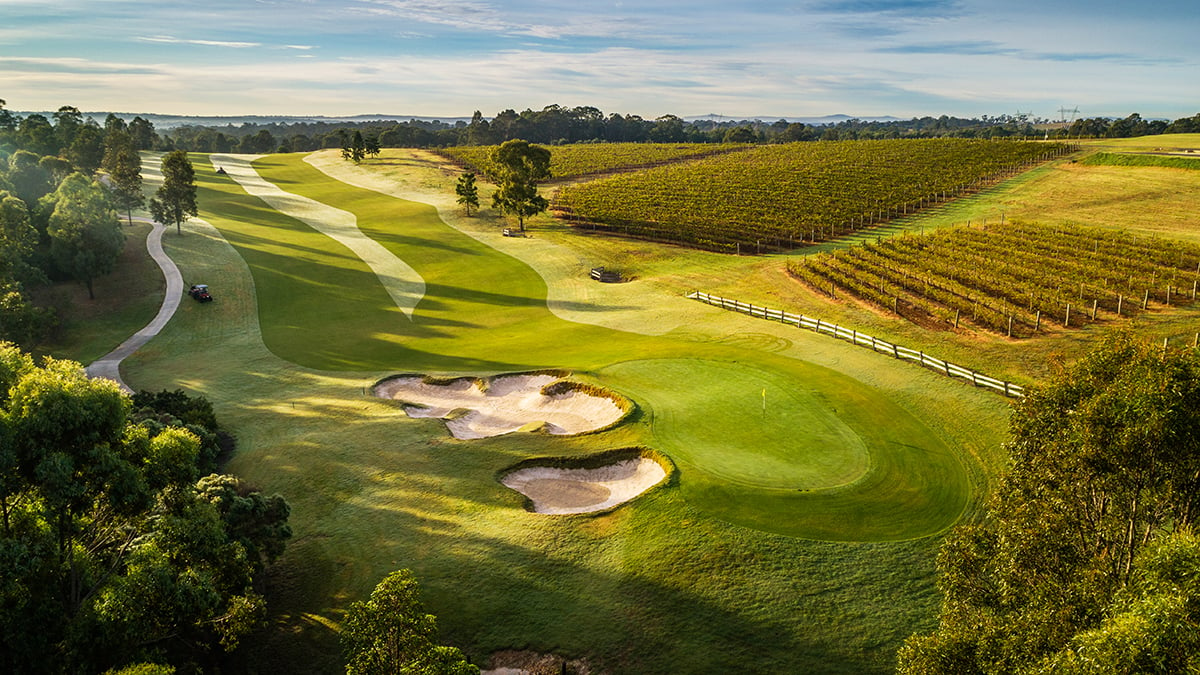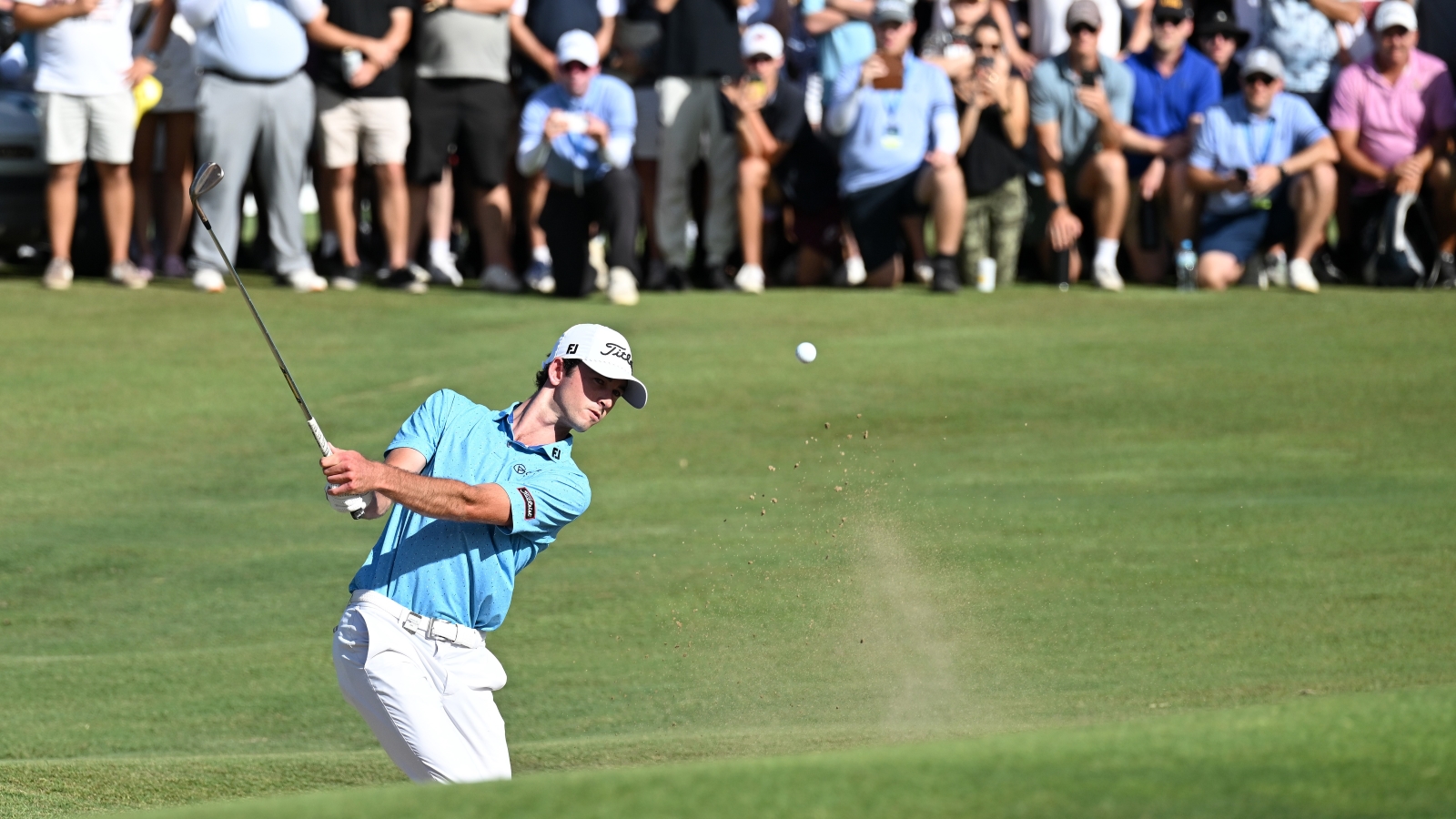Changing Trajectories – Australian Golf Digest

- by Admin
- November 26, 2024

What goes into the decision to walk away from the professional tours? We spoke to a series of pros who have changed lanes in golf.
The decision to turn professional and chase the life of a touring golfer is a moment that almost every elite player recalls vividly. Few, if any, have ever regretted the move. Taking up a tour career is one of the biggest and most exciting times in an elite golfer’s life.
But what about the decision to leave the tours, either partially or completely? It’s arguably more important and carries with it more weight. Playing golf every day for a living sounds like a dream, and in many cases it is. But unless you’re in the top 30 in the world, life on tour isn’t spent flying on private jets and staying in five-star hotels while competing for enormous sums of money.
The question of when to do it would also be difficult. How many times have you heard about a tour pro being on the verge of quitting, only to experience a breakthrough victory they knew was coming but couldn’t afford to keep funding? The answer is “plenty”, and it can be a wonderful headache.
In April 2010, Australian pro Ewan Porter wasn’t hanging up the clubs, but he had made the decision to leave the then-named Nationwide Tour in the US and move back to Australia to play the OneAsia Tour. He’d even packed up his house at West Palm Beach. The next week, Porter won the South Georgia Classic in Valdosta, Georgia, for his second career win on the feeder circuit to the PGA Tour. He continued to play for another three years before going into a successful career as a TV commentator. He officially stopped competing in 2017.
There are plenty more pros who called time on the tours without enjoying that type of romantic, emotional win. Many simply made an informed decision, usually in consultation with partners, family and support teams.
The choice to move into different areas of the golf industry can be a welcomed one and all the players Australian Golf Digest spoke with are at peace with, and are enjoying, how they changed the trajectory of their careers. Some pros gave away the tour willingly, some were left with almost no other options based on particular circumstances or playing opportunities, and others simply followed the wind.

INJURY AND OPPORTUNITY
Few golfers went with the flow quite like David Lutterus, a funny, charismatic lad from Adelaide. “Luda” grew up playing junior and amateur events with former world No.1 Jason Day. The two became close mates.
“‘JD’ was 20 and I was 22 and we were among the youngest golfers on the PGA Tour in 2008,” Lutterus tells Australian Golf Digest.
Lutterus played two seasons on the PGA Tour, in 2008 and 2010, and then had stints on the PGA Tour China and Korn Ferry Tour. “I’d always played on raw talent, and I didn’t know much about the golf swing. That’s until you fall into a bad patch, maybe lose your swing, lose control of the golf ball, and you get some help with your game.” He tried every method, every coaching style and philosophy. “I kind of worked with everyone for several years,” he says.
In 2019, Lutterus suffered a horrific accident on a quad bike and was forced to stop playing full-time while he recovered. “I could have died; I was in ICU for two days,” Lutterus recalls.
Once he was out of hospital, Day asked Lutterus to caddie for him temporarily on the PGA Tour while
Day was rebuilding his swing. He caddied for Day at events like the 2019 BMW Championship and in Japan at the Skins match, won by Day, and the Zozo Championship that week, won by Tiger Woods. Living in Columbus, Ohio, and being around Day as he worked with Chris Como to overhaul his swing only fuelled Lutterus’ love of the golf swing. Lutterus is an enormous fan of Ben Hogan.
When COVID-19 hit, Lutterus went back to Australia, “and I was giving seven or eight golf lessons a day, six days a week,” he recalls. “A lot of my students were hitting the ball really well, and some were even winning their various tournaments.”
Once back in the US after the pandemic, Lutterus – who was coaching accomplished mid-amateur golfer Stewart Hagestad, who has played in several Masters and US Opens – was also conducting coaching clinics. One was at the famed Oakmont Country Club in Pittsburgh, Pennsylvania, a US Open host course, where destiny took Lutterus to his next chapter. “Bob Ford, the head pro at Oakmont, spoke to me about the director of instruction position at Medallist Golf Club in Florida,” Lutterus says. “Bob is, and you can quote me on this, the Tiger Woods of the head pro world.”
Lutterus accepted the job and moved to the tour pro-laden Jupiter area in south Florida to start at Medallist, a sought-after club in Hobe Sound whose course was designed by Pete Dye and Greg Norman. It’s home to a variety of tour players like Woods, Justin Thomas, Xander Schauffele and Brooks Koepka. Lutterus has even played golf with US president-elect Donald Trump in Florida. “Mr Trump knows the golf swing incredibly well and can hit the ball pretty good,” Lutterus says. “At Medallist, I might have a tour pro or an elite amateur come into town for a lesson and it’s cool when, 10 yards away, Schauffele and Tiger are hitting balls. I love what I do.”
Porter, meanwhile, came through the Australian pathway to the US only a few years before Lutterus. He gathered an impressive career, winning twice on the Nationwide Tour and playing in the Open Championship three times between 2007 and 2010, the last of which was at the Old Course at St Andrews. Porter stopped playing halfway through 2013 and worked a few jobs outside golf. In 2017, having previously done some commentary work, he was asked to call the 2017 US Open at Erin Hills and then a few more big events such as the PGA Championship. Flying back to Australia later that year, he was filling out his arrival form and listed his occupation as “broadcaster”. That’s when he felt he’d truly moved on.
“It was the first time in 16 years, I think, that I’d not written ‘professional golfer’ on my arrival form,” Porter recalls. “It took me ages [to be at peace with the decision not to play on tour anymore]. Even though I missed plenty of cuts in my career, I was a multiple winner on the Nationwide Tour and there were a couple of different weeks when I won a six-figure cheque in US dollars. I’d also experienced the highs of playing in major championships. Nothing seemed to be as fulfilling, no matter what I tried, as playing golf for living – even though playing brought some frustration and heartache. When I was asked to commentate at the US Open, I felt like I should probably put the playing side of golf to bed.”

Porter, 42, is now an accomplished broadcaster who has called everything from men’s and women’s majors to the PGA Tour, DP World Tour and LPGA Tour. He recently returned from a month calling the LPGA Tour’s series of events in Asia, one of which was the BMW Ladies Championship in South Korea won by Australian Hannah Green.
Porter agrees the decision to walk away from the tours is bigger than the one to turn professional. “It really is, and it often boils down to the success you’ve had,” Porter says. “Especially if you’ve played the PGA Tour or been successful on the DP World, in Asia or the Korn Ferry Tour. You know your potential is there. I just have the utmost respect for those guys that that hang in there.”
In a similar boat to Porter is Melbourne’s Ali Whitaker. After playing US college golf at the renowned Duke University, Whitaker competed on the Ladies European Tour as a pro. At the end of 2014, she had finished a round in the morning wave at an LET event in China on her birthday, November 23. At lunch, a producer from the TV crew approached her and asked if she would fill in as a commentator. While the producer was looking for a European voice, they decided to give Whitaker a try behind the mic. “They gave me space and let me do my thing,” Whitaker recalls. By the end of that day, she was offered a contract for the next year if she didn’t want to keep playing. “I had vertigo and glandular fever that season, so I was battling pretty hard, and as soon as [commentary] was on the table, I knew that these opportunities don’t come around that often,” Whitaker says.
Whitaker is now one of the most accomplished and regular voices in golf. She is an analyst and host on the DP World Tour’s TV coverage. Australians will be familiar with her dulcet tones, given she calls most of the DP World Tour’s biggest events, as well as major championships and even this year’s Olympics in Paris.
But does Whitaker miss competing? “It sounds funny, but I still feel like I am playing; I prepare as though I am competing every single week,” Whitaker says. “I learn the golf course; I think about where all the misses are depending on what role I’m doing [in the booth versus on course]. I work with a great bunch of people. I think I’d miss playing it more if I was in an office job.”
Melburnian Alex Benjamin is one of many Australian pros who dabbled on tours before moving into the equipment side of the game. In 2010, he finished a PGA traineeship at Kingswood Golf Club (now Peninsula Kingswood) and had saved up all his money, plus some help from a fundraiser at the golf club. His dream was to travel to the US and tee up on the famous Hooters Tour (a mini-tour). “I was on the road pretty much 24/7 with a few weeks’ break here and there,” Benjamin recalls. “I missed 10 cuts in a row,” he laughs, “and these events would cost $US1,500 just for your entry fee. In the Hooters summer series, I did actually make a cut and won $800 but after travel expenses I probably made $30. I’d saved up about $40,000 and had gone through most of it in six months.”
For the three years after that, Benjamin hadn’t had much success as a tour pro, although he did finish T-21 at the 2012 West Australian PGA. At that year’s Australian Masters, Benjamin was second alternate in the field. Adam Scott won the event at Kingston Heath, defeating Ian Poulter.
“Around that time, I had been offered a club-fitting job with TaylorMade and was thinking about it,” Benjamin recalls. “I didn’t get into the field, and I thought, Maybe that’s it. I don’t know if I’m good enough. I asked Adam Scott and Marcus Fraser, and they were both realistic and supportive. They said if I was in that mentality already, I was probably ready for a new opportunity.”
Benjamin did take that job and has never looked back. As evidenced by his Instagram presence (benji_golf), he has worked with countless top Australian tour pros. After 11 years as a club fitter, he is now the brand activations supervisor. “I love it and my PGA traineeship gave me that equipment bug,” Benjamin says.
Lukas Michel, 30, has an interesting story to tell, even if he never actually turned professional. He very well could have, and thought very seriously about joining the paid ranks when he finished T-21 in a star-studded field at the 2019 Australian Open. He’d also won the US Mid-Amateur Championship that year, which brought starts in the 2020 US Open and Masters. Not only did he remain an amateur into 2020 for that, but the COVID-19 pandemic made his decision to turn pro incredibly challenging. He had an engineering degree and used his love of golf-course architecture to work as a consultant for Mike Clayton’s design firm, Clayton DeVries Pont.
Michel has never looked back, but has also remained an elite amateur. He recently returned from a tour of the US playing elite amateur events, as well as the Asia-Pacific Amateur Championship in Japan. He can pinpoint the moment he knew he shouldn’t turn pro.
“At the start of 2023, during the Australian Amateur final round, I stood on the 15th tee at New South Wales Golf Club needing to hit a driver and I just couldn’t. I thought, If I couldn’t handle that pressure there, I probably couldn’t do it on the PGA Tour or at majors.
“Winning the Port Phillip Amateur in 2022 gave me some confidence, but after missing the cut by a wide margin at the Vic Open, I knew it was time to focus on design. I soon jumped into a project reshaping 18 greens at a private course – a dream opportunity.
“I played against [PGA Tour pro] Min Woo Lee and [DP World Tour player] David Micheluzzi and they were amazing, but seeing some other guys I used to play with battle it out on the Aussie tour, I don’t know if that was for me. I feel really fortunate to have made the decision to go into course architecture and that I had another option.”

FROM OPENS TO OPEN HOMES
Two sublimely talented professionals, Jack Wilson, 33, and Jake Higginbottom, 31, have left the golf industry and are now forging successful real estate careers. For both, the pandemic played a significant role.
A product of Charlestown in Newcastle, Higginbottom lived up to the hype surrounding his fantastic junior career when he won the 2012 New Zealand Open as an amateur at the age of 19. He continued his momentum once he’d turned pro and enjoyed a fantastic 2014 season. Higginbottom also won a tournament on the eGolf Tour, a mini-tour, in the US. The same year, he finished second at the Fiji International, which was co-sanctioned by the European Tour, and he was sixth at the Australian Open.
“One of my career highlights was the 2014 Aussie Open,” he says. “I was top-10 going into the weekend and played the third round with Adam Scott. There were probably 5,000 people lining the first couple of holes. That same season on the Asian Tour, I needed to have a top-five finish in the last event to keep my card for 2015. I finished T-4 at an Asian Tour event in Dubai with an eight-under final round.”
Five years later, COVID-19 hit. “We stopped in March 2020 and the next event wasn’t until November 2021,” Higginbottom remembers. “During that time, I completed a bridging course to get into coaching. I worked at Waratah Golf Club for a bit, then at Charlestown, where I grew up playing.”
Australian pros couldn’t travel internationally without hassles for close to two years. In 2023, Higginbottom played seven events in Australia but missed four cuts. He could still shoot low scores, but Higginbottom decided to step away from golf and pursue real estate. He sells property for LJ Hooker Lake Macquarie, where he uses the dedication and consistency he learned from golf to help clients with property.

“It was probably the same reason most pros [step away]; financial,” Higginbottom says. “I wasn’t where I wanted to be in my career and financially it was getting tougher. Travel costs went through the roof, like flights, accommodation. In fairness, I probably wasn’t enjoying it as much as I used to. It was becoming more of a job than a passion. These days, while I do miss some events, like the Aussie Open or the PGA, I’m at peace with my decision. I’m loving my role in real estate around Lake Macquarie. I love the people side of it, and when you get to see clients either sell their home or buy their first home, it’s really rewarding.”
Wilson is recognisable among Australian golf fans for his breakout summer in 2013. While working as a trainee at Kingswood Golf Club, Wilson took it to Adam Scott and Rickie Fowler at Royal Pines during the 2013 Australian PGA. He had become the first ever trainee to win an Australasian Tour event when he claimed the West Australian PGA. Even then, in a summer when he was taking it to Scott and Fowler, he felt there was not enough money in the local circuit.
“I don’t think you can make a living… I finished fifth on the Order of Merit in 2013 with $116,000 before expenses,” Wilson recalls. “I won the WA PGA and three weeks later f inished third at the Aussie PGA and then added a T-2 at the NSW Open. That’s probably not a good example because I had a job as a (third-year) trainee and I wasn’t paying much rent where I lived. But the years after 2013, my expenses outweighed almost everything I made.”
When COVID-19 hit, Wilson was managing a pub on the Sunshine Coast in Queensland and dating his now wife, who was living in Canberra. When a position popped up at the start of the pandemic at Royal Canberra, which evolved into the head professional role, Wilson grabbed it with both hands.
“I had conditional Japan Tour status for 2020, but the pandemic shut down that opportunity,” Wilson says. “I was injured at the start of 2020 and hadn’t had the summer I wanted in 2019. But I had just cut my dreads off and raised $50,000 for Challenge Cancer Foundation to give kids the opportunity to have hair again – without a doubt one of my greatest achievements.
“After a year at Royal Canberra, I developed a network that led to my now role as a licensed real estate agent at Cream Residential in Hughes. I sell residential property and call auctions. I’m creating a life for my family. Being on tour for 10 years, travelling the world, I’d put myself in a lot of debt.”
While COVID-19 and Higginbottom’s and Wilson’s results on tour contributed to their career change, it doesn’t explain the difficulties in earning a living on the PGA Tour of Australasia. And that would be ignoring the fact Wilson and Higginbottom can still play. Higginbottom’s last two starts in 2023 were a T-29 at the NSW Open and a T-25 at The National tournament. Wilson is still a pro, although he describes himself as a “hobby pro” and tees it up at select PGA events. He shot 70-68 to win the Wagga Wagga Pro-Am last year, a $50,000 event with a first prize of $8,900.
Higginbottom and Wilson, who both played golf in Asia, saw the benefits of LIV Golf’s $300 million investment into the Asian Tour, which in turn created the International Series, a tour-with-a-tour whose order-of-merit winner receives status on LIV Golf for the next year. In addition, several Asian Tour pros have been brought into LIV as injury reserves, such as New Zealand’s Ben Campbell. In other words, the Asian Tour is flying thanks to its partnership with LIV Golf. Higginbottom and Wilson wonder whether Australian golf’s bodies properly listened to pitches from LIV Golf, given its commissioner and chief executive, Greg Norman, told Australian Golf Digest in April that “we knew we could bring an International Series to Australia and bookend it with a LIV event”. LIV Golf Adelaide has become arguably one of the biggest sporting events in Australia, with more than 90,000 fans attending the tournament at The Grange this year.
“Australia is a tour for opportunity and if we had a couple of Asian Tour events, there would be two winners’ categories that could potentially boost someone’s career to go to Asia, then potentially get to LIV Golf,” Higginbottom says. “I feel Australia could definitely attract some bigger events, and whether it’s with Asia, Europe or the PGA Tour, there could be more opportunity here in Australia.”
Wilson agrees; a partnership with the Asian Tour and the International Series could have been beneficial to Australian-based pros.
“Without a doubt. Anyone who is critical of LIV just doesn’t understand what it’s like to play on tour,” Wilson says. He points out how opportunities to join LIV can set up a player’s career. In addition to Campbell, Australian pro Travis Smyth benefitted from playing several events on LIV in 2022, which helped fund his Asian Tour costs. Wilson admires the lifestyle the all-Australian team on LIV Golf, Ripper GC, lead as tour pros. Ripper GC is captained by superstar Cameron Smith and includes Marc Leishman, Lucas Herbert and Matt Jones.
“If you started playing this game knowing you could earn a wage and additional prizemoney, endorsements and get to play in a team with people you can call mates, that’s not golf; that’s the dream that any of us could ever want.”
Featured photo:
David Lutterus suffered an injury then received a tremendous opportunity, leading to his golf ‘pivot’.
Stan Badz/getty images
The Latest News
-
November 26, 2024Indian apparel exporters expecting more business from Australia | Trade Data News Bangladesh
-
November 26, 2024News You May Have Missed: December 2024 – Australian Golf Digest
-
November 26, 2024The numbers leading up to Australia’s Perth capitulation
-
November 26, 2024‘Enshittification’: Australian Dictionary’s Word Of The Year, What It Means
-
November 26, 2024Top 100 Spotlight: The Vintage Golf Club – Australian Golf Digest




